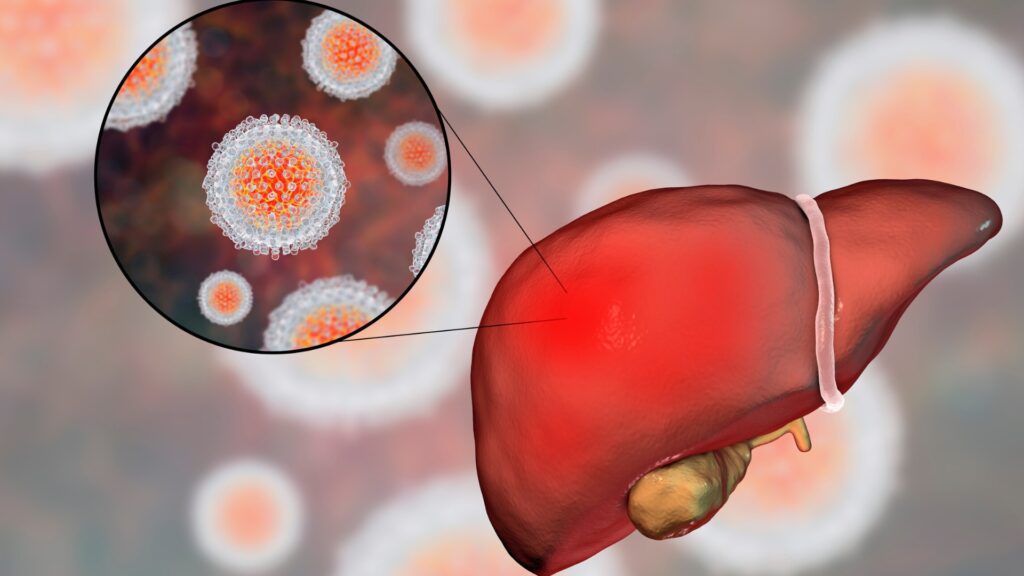Understanding Hepatitis B
Understanding Hepatitis B is a serious liver infection caused by the hepatitis B virus (HBV). It can cause both acute and chronic disease, and it poses a significant health risk worldwide. Hepatitis B is transmitted through contact with infectious body fluids, such as blood, semen, and other body fluids. Chronic hepatitis B can lead to liver failure, liver cancer, or cirrhosis—a condition that causes permanent scarring of the liver.
Causes and Risk Factors
Hepatitis B is caused by the hepatitis B virus, which spreads through contact with infectious body fluids. Key risk factors include:
- Unprotected Sex: Having unprotected sex with an infected person can lead to transmission.
- Sharing Needles: Sharing needles and syringes with someone who has the virus.
- Mother to Child: Mothers can pass the infection to their babies during childbirth.
- Accidental Needle Sticks: Healthcare workers and others who come into contact with human blood are at risk.
- Direct Contact with Blood or Open Sores: Coming into contact with infected blood or open sores of an infected person.
Signs and Symptoms
Hepatitis B symptoms vary from mild to severe and usually appear about 1 to 4 months after infection. Some individuals, particularly young children, may not exhibit symptoms. Common signs and symptoms include:
Acute Hepatitis B:
- Fever
- Fatigue
- Loss of appetite
- Nausea and vomiting
- Abdominal pain
- Dark urine
- Clay-colored stools
- Joint pain
- Jaundice (yellowing of the skin and eyes)
Chronic Hepatitis B:
- Symptoms may be similar to acute hepatitis B or may not appear until significant liver damage has occurred.
- Persistent fatigue
- Right upper quadrant abdominal pain
- Jaundice
- Fluid retention and swelling in the abdomen
Complications
Chronic hepatitis B can lead to serious health issues, including:
- Cirrhosis: Extensive scarring of the liver that can impair its function.
- Liver Cancer: Increased risk of developing liver cancer.
- Liver Failure: The inability of the liver to function properly.
- Vascular Problems: Increased risk of vascular disease and conditions such as vasculitis.
Prevention
Preventing hepatitis B involves several strategies, including:
- Vaccination: The hepatitis B vaccine is safe and effective, and it is the best way to prevent hepatitis B.
- Safe Sex Practices: Using condoms and practicing safe sex.
- Avoid Sharing Needles: Do not share needles, syringes, or other drug-injection equipment.
- Blood Screening: Screening donated blood and blood products for HBV.
- Precautions in Healthcare: Following standard precautions to avoid accidental exposure in healthcare settings.
Plants That Could Help
While there are no plants that can cure hepatitis B, some herbs may support liver health and aid in managing symptoms:
- Milk Thistle: Known for its liver-protective properties.
- Dandelion Root: Used traditionally to support liver health.
- Licorice Root: Has anti-inflammatory and immune-boosting properties.
- Turmeric: Contains curcumin, which has anti-inflammatory and antioxidant effects.
Supplements That Could Help
Certain supplements may support liver health and help manage hepatitis B symptoms:
- Vitamin D: Supports immune function and overall health.
- Vitamin E: An antioxidant that may help protect liver cells.
- Omega-3 Fatty Acids: Found in fish oil, these support liver health and reduce inflammation.
- Selenium: A mineral that may help reduce liver damage.
- Probiotics: Support gut health and overall immune function.
Healthy Tips
Implementing these tips can further help manage and reduce the risk of hepatitis B:
- Regular Monitoring: Regular checkups with your healthcare provider to monitor liver function and overall health.
- Healthy Diet: Eating a balanced diet rich in fruits, vegetables, lean proteins, and whole grains.
- Avoid Alcohol: Limiting or avoiding alcohol to prevent additional liver damage.
- Stay Hydrated: Drinking plenty of water to support liver function.
- Exercise Regularly: Engaging in regular physical activity to maintain overall health.
References
- Centers for Disease Control and Prevention (CDC). (2023)
- Mayo Clinic. (2023)
- World Health Organization (WHO). (2023)

Suleiman Atieh, experienced pharmacist specializing in healthcare, patient wellness, safe medication practices, disease management, and supplement guidance.








